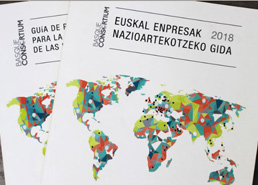The Self Repairing Cities project aims for zero disruption from streetworks in UK cities by 2050 through developing infrastructure robots.
Self Repairing Cities, a UK project led by the University of Leeds that has the goal of achieving zero disruption from streetworks in cities by 2050, is inviting entries to its Robotic Challenge 2020.
It wants to help develop robots that will identify, diagnose and repair streetworks through “minimally invasive techniques”.
As part of the vision, the team behind the project wants to make Leeds the first city in the world that is fully maintained autonomously by 2035, with the aid of Leeds City Council.
Infrastructure robotics
The organisers are seeking entries from robotic researchers and innovators who wish to showcase their robotic technologies at a two-day event on 23-24 June 2020 at Weetwood Hall Estate in Leeds. Expressions of interest are requested by 24 January 2020.
The event aims to bring together those with responsibility for infrastructure, contractors, policy-makers and city builders with researchers and innovators to create a broad vision of the challenges and opportunities for infrastructure robotics.
Alongside showcasing technical advances, there will be discussion on the benefits and impact of adopting such technology, and what cities need to do to prepare for the future.
Applications for robots cover broad domains including civil infrastructure, transport (road, rail, sea), offshore energy, space and nuclear. Robots may fall under, but are not limited to, the following technological challenges:
- Perceive and patch: vehicles for autonomous inspection, diagnostics, repair and prevention of defects such as potholes
- Perch and repair: remote inspection and maintenance of structures at height, such as bridge inspection
- Plunge and protect: autonomous robots with the ability to perform underwater or underground infrastructure inspection repair, and preventive defect maintenance
- Fire and forget: robots designed to operate indefinitely performing inspection, repair, metering and reporting tasks, such as robotics operating in live water mains
- Construct and confirm: coordination of robot teams to build/print, finish and certify infrastructure from CAD models, using environmentally friendly building materials
- Dismantle and dispose: advanced manipulation in extreme environments to manipulate, cut, separate and unfasten structures, such as infrastructure de-commissioning such as nuclear or wind
- Data and decisions: create, process and interpret data securely for effective, verifiable and trustworthy operation of robots, such as robots to remotely augment building information models.
It is expected that entries will be physically demonstrated at the event. However, where this not appropriate or possible then entries are permitted as three-minute videos.
Demonstrations will be judged by a panel of leading academics and industrialists. Cash prizes totalling £5,500 are offered, supported by sponsorship from Anglian Water and Synthotech.
As part of the vision, the team behind the project want to make Leeds the first city in the world that is fully maintained autonomously by 2035.
Applicants who fulfil the initial assessment criteria will be invited to submit a short preview video of their robotic system in action by 15 March. Entries will be further assessed on technical innovation, potential for impact, alignment to infrastructure challenges, and quality and feasibility of proposed demonstration.
Partners in the project include University of Southampton, University of Birmingham and UCL. The challenge is supported by the Engineering and Physical Science Research Council (EPSRC) through the Grand Challenge of Balancing the Impact of City Infrastructure Engineering on Natural Systems using Robots. It is organised in collaboration with the UK RAS Network and UK Robotics Week.



